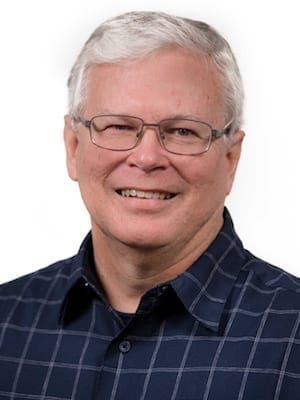I stopped posting on social media about the presidential campaign a few weeks ago because I didn’t trust myself.
I had not taken sides, but I was beginning to get angry and wanting to say mean things, to use unkind labels, to disrespect.
It’s been hard not to comment, but I’m glad I refrained. My anger and meanness would not have helped anyone.
Now we near the end, and I wonder how the vitriolic language of this campaign will affect us as a people going forward. Can we unite behind an imperfect president?
None of our presidents has been perfect, and we did not always unite.
The South seceded when the nation elected Lincoln, who opposed the expansion of slavery.
The folly of the secessionist course revealed itself, so now groups are tempted to secede in less formal ways, but division cannot build a vibrant and effective nation.
By division, I’m not talking about disagreement; I’m talking about a refusal to work with those with whom we disagree for the common good of the society.
From our nation’s earliest days, lies and misrepresentations have been used to discredit opponents. It is a despicable practice, which makes one wonder how we have survived.
So now we stand at a new place in history shaped by lies and misrepresentations. How do we move forward? Care with our language is a good place to start.
Mitch Carnell contributed an excellent essay called “The Power of Words” for the book he edited, “Christian Civility in an Uncivil World.”
“Words have a way of making themselves part of the fabric of our lives,” he said. “Our language is a sacred trust. With it we can join God in the act of creating a world fit to dwell in. We can lift people up and help them become what God intended for them to be. With our words we can also be a mighty force for evil, destroying other people’s lives as well as our own.”
Carnell added, “Words once spoken can never be recalled. Their sword can never be re-sheathed. God has trusted us with a powerful force to be used for good or evil.”
It seems our first step in moving forward as a nation is to recognize that we all have been affected by the words we have heard from the candidates, the commentators, our friends and ourselves.
There are some real scars there because harsh words always leave a memory. In recognizing those scars, we now have a chance to help change the pattern of language that has dominated the public square.
A second step is to recognize that words have consequences. We have all said words we wish we could take back. We can’t go back, but we can give attention to the words we are yet to speak.
Words do not simply leave behind good or bad feelings; they affect behavior.
“Words inspire behavior,” Carnell said. “Mark Twain understood this when he said, ‘The difference between the right word and the almost right word is like the difference between lightning and the lightning bug.'”
He added, “Words are not empty vessels. They are pregnant with meaning and laden with content. They evoke images and transmit feelings. They can hurt or heal and cause anger or heartache or comfort.”
A third step is to be inspired by Christ and the words of Scripture, to seek wisdom there when it is not being spoken through people in the spotlight – elected or unelected.
Jesus said, “I give you a new commandment, that you love one another. Just as I have loved you, you also should love one another” (John 13:34).
We are to love Hillary Clinton and Donald Trump. They are our neighbors, and they each are more in need than either may realize.
Power, money and fame should not distract us from the human reality that is expressed in these two lives. They each need Christ and his followers – the one elected and the one not elected.
And we need our neighbors who voted differently from us; we need each other. All wisdom and all folly are not grouped on one side or the other. Fallen souls voted for each of these candidates.
One final thought: No matter what happens with the United States, I pray Christians will stick together under the lordship of Christ.
We may disagree on political solutions, but we remain united by the eternal love and power of God. No earthly conflict should separate us, even when we disagree. We are bound by blood not our own. We dare not take that bond lightly.
So, let’s speak with love to one another.
As Carnell said, “Words are far too powerful to be thrown about casually. They are the building blocks of all our relationships. We can use them to build a bridge between one another or to erect walls that none of us can penetrate. My prayer is for the bridges.”
 Ferrell Foster is director of ethics and justice for the Baptist General Convention of Texas’ Christian Life Commission. A longer version of this article first appeared on the BGCT’s blog. It is used with permission. You can follow him on Twitter @ferrellfoster.
Ferrell Foster is director of ethics and justice for the Baptist General Convention of Texas’ Christian Life Commission. A longer version of this article first appeared on the BGCT’s blog. It is used with permission. You can follow him on Twitter @ferrellfoster.
Ferrell Foster is Content Specialist for Care and Communication for Prosper Waco.

